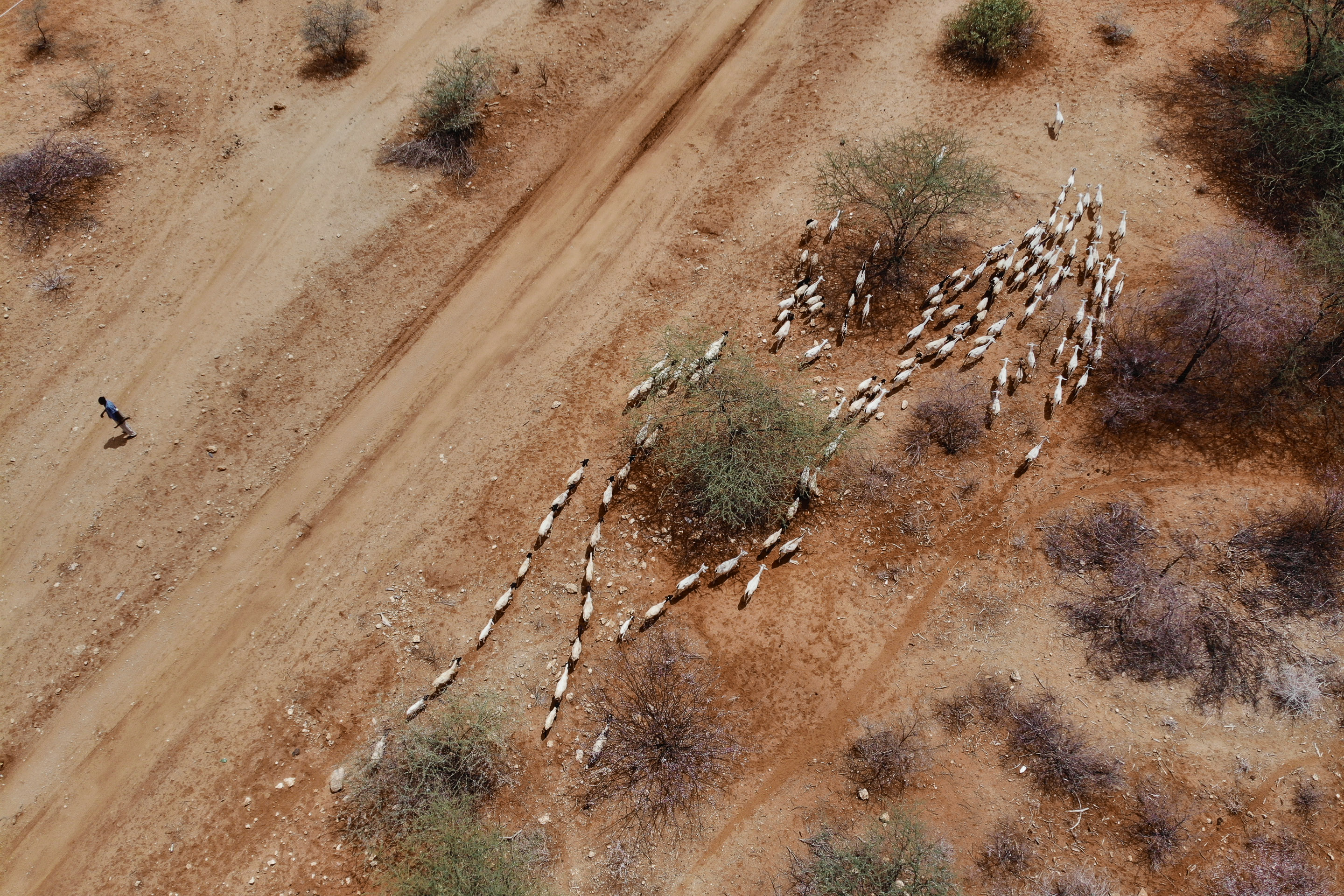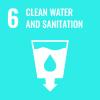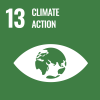Turkana County, Northern Kenya, 20 March 2023 – “When I was a child, everything was different. There was plenty of grass, water, and animals. But now there is nothing except for drought,” explains Ekwuon.
Ekwuon has witnessed the ongoing drought in Turkana County which has not only cleared his herd of cattle but also left more than 4.4 million people in Kenya without access to food and clean water.

Ekwuon, Turkana County, Nothern Kenya. Photo: IOM 2023/Muse Mohammed
The 60-year-old former pastoralist has seen his livelihood slowly die out due to the recent droughts plaguing Turkana County, in Northern Kenya.
For many pastoralists from this region, migration was a necessary part of life as herds of animals would travel long distances to graze on fresh grass that would change according to the seasons. Many would often cross borders in search of food and water in regular cycles.
“In my community, our entire way of life revolved around having livestock. We could sell our animals for money, for food, even for paying dowries. My entire wealth was based on how many animals I had.” Unfortunately, climate change has made this way of life increasingly difficult, leaving little food and water for the animals.
As a result of the arid conditions, many pastoralists have been displaced from their communities and forced to find alternative livelihoods.

Drought-affected pastoralists have migrated in search of water and pasture for their livestock in Kenya. Communities in Kenya are facing the threat of starvation due to the continued drought conditions. Photo: IOM 2022/Claudia Rosel
Today, Ekwuon has been displaced from his home community and forced to live in Namon village, a community along a major migratory route. The scorching heat has even made farming difficult, leading some to resort to alternative livelihoods activities such as charcoal burning.
However, this millennial-old traditional way of life is under threat from the adverse impacts of climate change.
The pastoral way of life has existed in the Kenya for several millennia, with herders moving seasonally to take advantage of pasture and water. Mobility remains the key aspect of pastoralists’ ability to adapt amidst climatic challenges and environmental degradation, to not only access seasonally available pasture and water, but also markets and social support networks.
In the outskirts of Namon village, Ekwuon has set up two small makeshift homes that barely accommodate him and his 20 children who often spend the night under the stars.

Ekwuon has been forced to move to Namon village where he stays in a makeshift shelter with his 20 children. Photo: IOM 2023/Muse Mohammed
As an outsider to the community, Ekwuon feels the alienation by others: “Because I am not from here, I can feel the discrimination from others. Whenever aid is brought to this community from other organizations, displaced people like me are always the last the to receive it.”
He feels unsure about the future for his family but is sure of one thing; his children will not likely become pastoralists like him.
“I want my children to go to school so they can get a proper job, one that does not rely on the land. I want them to come back and help communities like this one.”
This crisis is not unique to Kenya, as other countries in Sub-Saharan Africa are also facing severe food shortages and water scarcity. The lack of rain over the past five seasons has made it difficult for people to grow crops and provide food for themselves and their families. As a result, thousands have lost their livelihoods and have been forced to flee their homes in search of food and water.

Due to the ongoing drought, several rivers, wells, and dams have dried up in Arid and Semi-Arid counties, which has forced people to move to find pastures and water sources elsewhere. Photo: IOM 2022/Claudia Rosel
Eregae, a community member in Namon village, depicts further the severity of the droughts in the region: “The droughts are more severe these days. A few years ago, when there was a drought, we could see green pasture over the hills and take our animals to graze there and later return here for water. Unfortunately, that no longer happens. We have not received rain for more than two years. The land is completely dry.”
The International Organization for Migration (IOM) is taking action to address and minimize displacement risk due to climate change, environmental degradation, and disasters through a Migration Multi-Partner Trust Fund Regional Joint Programme.

Some 44,500 drought-resistant trees and vegetable seedlings have been planted in Turkana County and the community has been trained to take care of these plants as an alternative way of life. Over 200 community members are already benefiting from the project. Photo: IOM
In Tana River and Turkana Counties, IOM is supporting local communities and County Governments to restore the land and provide a sustainable source of food for the community.
So far, 44,500 drought-resistant trees and vegetable seedlings have been planted in Turkana County and the community has been trained to take care of these plants as an alternative way of life. In Namon village, over 200 community members are already benefitting from the project.

Community members planting tree seedlings and vegetable cover to revegetate Namon village, Turkana, Northern Kenya. Photo: IOM
The severity of the drought is also driving widespread displacement. “We are forced to move from Turkana. You cannot stay in a drought-stricken land and watch as your livestock succumb and you will be left empty-handed,” explains Eregae.
Inter-communal conflicts have further increased as farming and pastoral communities compete for the already scarce water and pasture.
IOM´s activities to minimize disaster risk due to climate change, environmental degradation, and disasters are made possible thanks to generous funding from the Migration Multi-Partner Trust Fund through a Regional Joint Programme: Addressing Drivers and Facilitating Safe, Orderly and Regular Migration in the Contexts of Disasters and Climate Change in the IGAD Region.
This story was written by Moses Otunga, Communications Assistant, IOM Kenya. For more information, please contact: motunga@iom.int




